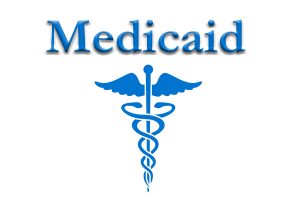
Methamphetamine, popularly known as meth, is a powerful stimulant drug. It is often used as a recreational drug because of the pleasurable high it produces, as well as heightened brain activity. In some very limited cases, the drug is used medically to help treat ADHD (attention deficit hyperactivity disorder). Most medical professionals would not prescribe meth in normal circumstances, though.
The US Drug Enforcement Administration (DEA) puts meth under its list of Schedule II controlled substances. That means the drug has recognized medical uses but has a high potential for abuse and addiction. The potent action of meth on your central nervous system means you can get addicted to it pretty easily.
Meth addiction treatment has many components, from detox to therapies to aftercare. The costs can rack up easily, and you may not always be able to afford treatment. If you’re wondering whether Medicaid covers these kinds of treatments, read on to find the answer.
What is Medicaid?
 Medicaid is a public health insurance program in the United States. It offers health care coverage to low-income families and individuals. The federal government and individual states both contribute to the program’s funding, but implementation is governed by states. Thus, coverage and administration differ widely from one state to the next. Generally, though, Medicaid is only available to people who meet certain income requirements.
Medicaid is a public health insurance program in the United States. It offers health care coverage to low-income families and individuals. The federal government and individual states both contribute to the program’s funding, but implementation is governed by states. Thus, coverage and administration differ widely from one state to the next. Generally, though, Medicaid is only available to people who meet certain income requirements.
Your eligibility is determined by your income in relation to the Federal Poverty Level (FPL). The FPL is used to evaluate if your income qualifies you for government assistance. In general, if you earn less than 100 to 200 percent of the FPL, Medicaid can help you. Also, if you are among these groups, a program will be available to assist you:
- A person with a disability
- A child (under 19 years old)
- A parent
- Pregnant
- Elderly (over 65 years old)
Additionally, if you belong to one of these groups and your income falls below 138 percent of the FPL, you are further eligible for assistance. In some states, all adults below a specific income level are covered.
Here are the specific annual income levels that qualify for Medicaid assistance:
- $12,880 for individuals
- $17,420 for a family of 2
- $21,960 for a family of 3
- $26,500 for a family of 4
- $31,040 for a family of 5
- $35,580 for a family of 6
Citizens, permanent residents, and legal immigrants in the United States are among the recipients of Medicaid. As of September 2020, around 70.6 million people were covered.
Does Medicaid cover Meth addiction treatment?
Under the Affordable Care Act (ACA) of 2010, all health insurance providers (including Medicaid) are required to cover all essential parts of drug and alcohol rehab. These include:
- Screening
- Intervention
- Family counseling
- Detox
- Maintenance medications
- Inpatient rehab
- Long-term residential rehab
- Outpatient therapies
 But even while Medicaid supports substance abuse treatment, not all rehab facilities accept Medicaid as a payment option. Contact the Substance Abuse and Mental Health Services Administration (SAMHSA) to know which rehab centers accept Medicaid.
But even while Medicaid supports substance abuse treatment, not all rehab facilities accept Medicaid as a payment option. Contact the Substance Abuse and Mental Health Services Administration (SAMHSA) to know which rehab centers accept Medicaid.
While individual plans and benefits differ by insurer and state, Medicaid contributed 21% of the $24 billion spent in 2009 by health insurance providers on substance use disorders (SUD). A substance use problem affects nearly 12% of Medicaid recipients over the age of 18.
To help with mental health treatment coverage, the Mental Health Parity and Addiction Equity Act was created. This law prohibits discriminatory policies that limit insurance coverage for mental health treatments. In turn, this ensures Americans with mental health and substance use disorders receive much needed treatments.
Under new federal standards, Medicaid must adhere to parity requirements. In other words, coverage for mental health and substance abuse treatment must only be as stringent as coverage for other medical conditions.
Are medications for treatment covered?
You might also be wondering if Medicaid can help you with the cost of medications. These can form a bulk of the cost of treatment, especially if you have to take them as maintenance medications.
The good news is yes, medications are now covered. The federal government established guidelines in 2020 to help states expand access to medication-assisted therapy. Medicaid coverage for some medicines, as well as counseling and behavioral therapy, is now mandated in all states.
There are also state-funded detox and rehab programs, which are less expensive than private facilities. They are supported by state and federal programs, grants, and taxes. The best part is they generally accept Medicaid.
These facilities are critical if you cannot afford private treatment and rehab programs, which can cost thousands of dollars per day. State-funded programs provide residential facilities as well as outpatient programs.
Is my entire stay in rehab covered?
 The amount of time you spend in rehab is determined by your particular needs and your rehab provider. There is no standard length of treatment that applies to all patients. However, evidence suggests that treatment outcomes depend on the length of treatment. Longer rehab stays generally produce more successful recoveries.
The amount of time you spend in rehab is determined by your particular needs and your rehab provider. There is no standard length of treatment that applies to all patients. However, evidence suggests that treatment outcomes depend on the length of treatment. Longer rehab stays generally produce more successful recoveries.
Depending on your needs and how you perform, inpatient treatment can last anywhere from 5 to 7 days for medical detox, then from 30 to 90 days or more for the residential therapies. Outpatient treatment can go for a year or more.
Each state has its own set of criteria for inpatient rehab coverage. Prior to the ACA, addiction treatment was frequently not covered by private insurance and was severely limited for those with public insurance. But now, insurance companies are required to cover a complete set of treatment options, including residential treatment for substance abuse.
In 2015, the Obama administration published recommendations for how states might cover inpatient and residential treatment for substance use disorders. This way, you can be provided a comprehensive continuum of care, as specified by the American Society of Addiction Medicine (ASAM). Covered treatments include:
- Early intervention
- Outpatient services
- Intensive outpatient treatment
- Partial hospitalization services
- Inpatient services
- Medically-managed intensive inpatient treatment
If you happen to have private insurance, and you qualify for Medicaid, you can use both to help pay for your treatment. Ask your rehab provider and insurer to find out the specific terms.


